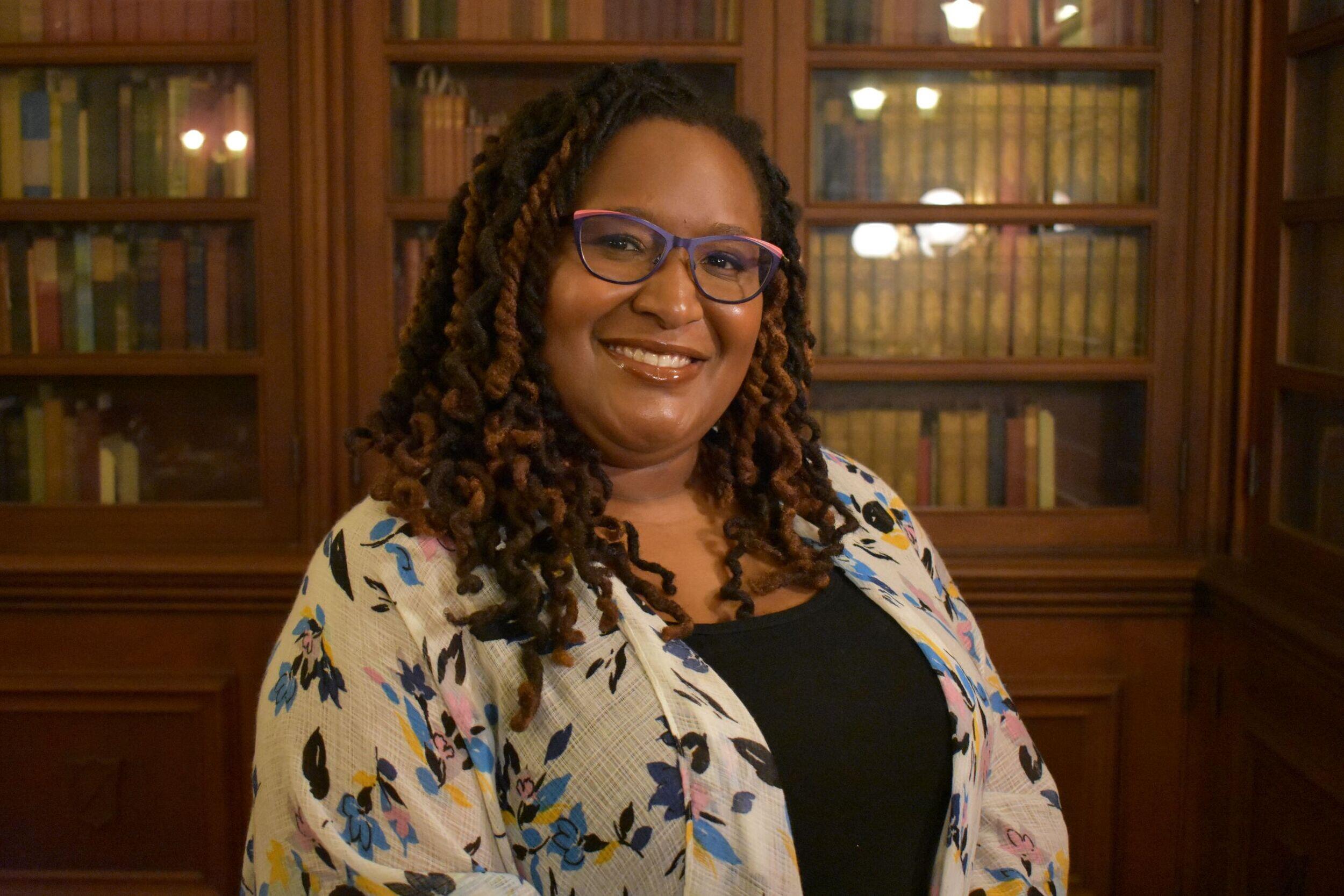
Feb. 17, 2023
Meet-a-Ram: Jayme N. Canty, who researches the South’s impact on Black queer women
Share this story
Meet-a-Ram is an occasional VCU News series about the students, faculty, staff and alumni who make Virginia Commonwealth University such a dynamic place to live, work and study.
Editor’s note: Meet-a-Ram is an occasional VCU News series about the students, faculty, staff and alumni who make Virginia Commonwealth University such a dynamic place to live, work and study.
Jayme N. Canty, Ph.D., an assistant professor in the Department of Gender, Sexuality and Women’s Studies in the College of Humanities and Sciences, is the iCubed affiliated faculty for Intersections in the Lives of LGBTQIA+ Communities, which is designed to create an environment for a diverse faculty at VCU. Canty’s book, “Snapping Beans: Voices of a Black Queer Lesbian,” which is based on interviews with 39 women, is scheduled to be published by SUNY Press.
How did you become an iCubed scholar at VCU?
The Office of Institutional Equity, Effectiveness, and Success held a nationwide search for a few visiting faculty scholars for the Intersections of Lives of LGBTQIA+ persons core. The job posting interested me because I was looking for a position related to my research area and service agenda. That was the work I was already doing, and the position just really piqued my interest. When I saw the job posting, I applied and was grateful for the opportunity to come here in 2019.
Talk a little bit about your research.
I uncover a potential collective narrative of the experiences of Black queer lesbian women living in or from the American South. I am looking to see what societal factors of the South, places like the church, impacted on the lives of all Southern Black folks. So, I wanted to see the impact that the church influences the coming out narrative of Southern Black queer and lesbian women and persons as well as how they negotiate with their sexuality and make sense of their sexuality given the realities of Southern Black life. I deal with a lot of discussions related to the shame, silence, condemnation and judgment that exists in the South as well as the healing and reconciliation that Southern Black queer lesbian women have with the South.
The church affects more than the people who attend, right?
The church influences the rest of Southern life. It has such a stronghold on Southern culture. Even for Southern folks who don't attend church regularly, they can still adopt oppressive ideologies as it relates to sexuality and the ways in which Southern Black women can engage in sex and explore their sexuality. I also look at the ways in which we — Black, queer, lesbian women and persons, myself included — find healing and wholeness within the South given these underlying impacts of the Church. I look at how we attach ourselves to the South as a location and as an identity. I uncover in the work why and how we are able to connect with our Southern selves. Even with all this trauma and hurt that we've experienced by the church, how we still connect ourselves to the South, consider ourselves Southern and identify as Southern.
When you were a student, did you have a favorite class or professor?
One of my favorite classes was actually a “Politics in the Americas” class at North Carolina A&T State University. The class focused on the politics of Central and South America. It talked about the racial disparities that exist in those regions and its impact on the socioeconomic realities of the region. I took it with Dr. James Steele. He was actually one of the first people to see my potential outside of attending law school. He had a lasting impact on my desire to attend graduate school at Clark Atlanta University. Even to this day, we still keep in touch.
What was the best piece of advice you got while in school?
In general, during undergrad, we were always told to always continue learning. Going to an HBCU (historically Black college/university), students were expected to continue their education after graduation. In fact, I had a mentor who would call me “Doctor Canty,” because that was the expectation. The conversation was always, “OK, well, what's your next degree? What are you going to study next?” There was no exception. Whether it was a law degree, an MBA, a master's degree, or any kind of certification, attending an HBCU, we were always told to continue what we started at A&T so we may be the next generation of leaders in our areas. Excellent leadership was a standard and requirement, not an option.
What is your favorite meal?
I don’t have just one. I’m a foodie. I definitely love seafood. And of course, I'm a Southern girl so I love many Southern delicacies — mac and cheese, collard greens, yams, and smoked turkey legs to name a few. I love gumbo and crab legs. If I could eat crab legs every day, I probably would, though it is probably not good for you. I love salmon and mussels. Anything seafood, I absolutely love.
Do you have a hobby outside of work?
I do enjoy making homemade lotion bars and scrubs. It has been really fun during the pandemic. I found something that uses my hands, and I have to be patient. I've always been into baths, lotions, and anything related to taking care of your body. People say I should sell [the lotions], but I just enjoy making them and giving them away.
Subscribe to VCU News
Subscribe to VCU News at newsletter.vcu.edu and receive a selection of stories, videos, photos, news clips and event listings in your inbox.










